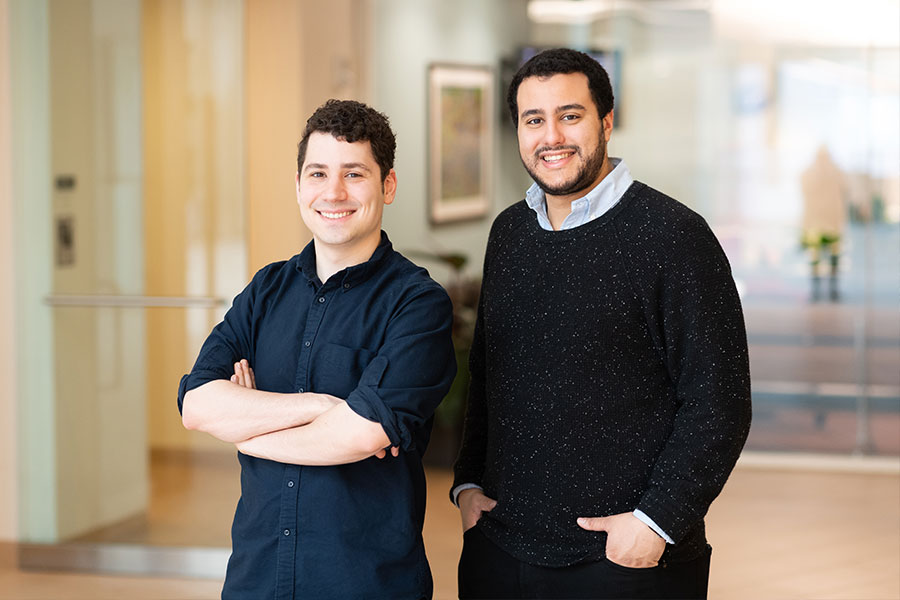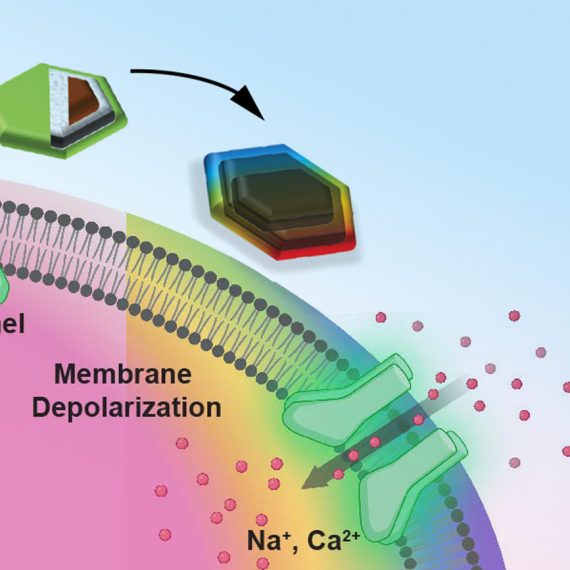Welcoming the first McGovern Fellows
Recent graduates Omar Abudayyeh and Jonathan Gootenberg are the inaugural fellows of the McGovern Institute.

We are delighted to kick off the new year by welcoming Omar Abuddayeh and Jonathan Gootenberg as the first members of our new McGovern Institute Fellows Program. The fellows program is a recently launched initiative that supports highly-talented and selected postdocs that are ready to initiate their own research program.
As McGovern Fellows, the pair will be given space, time, and support to help them follow scientific research directions of their own choosing. This provides an alternative to the traditional postdoctoral research route.
Abudayyeh and Gootenberg both defended their thesis in the fall of 2018, and graduated from the lab of Feng Zhang, who is the James and Patricia Poitras Professor of Neuroscience at MIT, a McGovern investigator and core member of the Broad Institute. During their time in the Zhang lab, Abudayyeh and Gootenberg worked on projects that sought and found new tools based on enzymes mined from bacterial CRISPR systems. Cas9 is the original programmable single-effector DNA-editing enzyme, and the new McGovern Fellows worked on teams that actively looked for CRISPR enzymes with properties distinct from and complementary to Cas9. In the course of their thesis work, they helped to identify RNA-guided RNA editing factors such as the Cas13 family. This work led to the development of the REPAIR system, which is capable of editing RNA, thus providing a CRISPR-based therapeutic avenue that is not based on permanent, heritable changes to the genome. In addition, they worked on a Cas13-based diagnostic system called SHERLOCK that can detect specific nucleic acid sequences. SHERLOCK is able to detect the presence of infectious agents such as Zika virus in an easily-deployable lateral flow format, similar to a pregnancy test.
We are excited to see the directions that the new McGovern Fellows take as they now arrive at the institute, and will keep you posted on scientific findings as they emerge from their labs.




